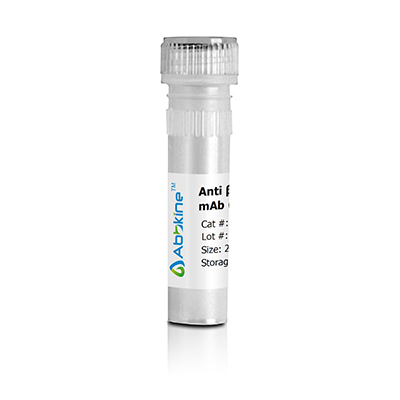CD5 has been identified as a transmembrane glycoprotein that is expressed on 70% of normal peripheral blood lymphocytes and on virtually all T lymphocytes in thymus and peripheral blood. Activation of T cells through the T cell receptor (TCR) results in tyrosine phosphorylation of CD5, and the absence of CD5 renders T cells hyper-responsive to TCR-mediated activation. CD5 associates with the TCR/CD3 ζ chain, and with the Src family kinase, Lck p56. The C-type lectin superfamily member CD72 is a cell surface negative regulator of B cell activation from the pro-B through the mature B cell stage. CD72 serves as a receptor for CD5. The ability of lymphocytes to respond to antigenic or mitogenic stimulation utilizes both positive and negative regulatory proteins that influence the threshold for responsiveness. The human CD72 gene maps to chromosome 9p13.3 and encodes a transmembrane glycoprotein that contains an immunoreceptor tyrosine-based inhibition motif (ITIM). Upon tyrosine phosphorylation, the CD72 ITIM recruits SH2-containing phosphatases such as SHP-1, resulting in downregulation of cell activation. CD72-/- mice contain hyperproliferative B cells.
CD72 Polyclonal Antibody detects endogenous levels of CD72 protein.
Optimal working dilutions should be determined experimentally by the investigator. Suggested starting dilutions are as follows: WB: 1:500-1:2000, ELISA: 1:10000. Not yet tested in other applications.
CD72 Polyclonal Antibody product listed herein is for research use only and is not intended for use in human or clinical diagnosis. Suggested applications of our products are not recommendations to use our products in violation of any patent or as a license. We cannot be responsible for patent infringements or other violations that may occur with the use of this product.
Find more details at http://www.abbkine.com/product/cd72-polyclonal-antibody-abp57395.
bio-equip.cn




